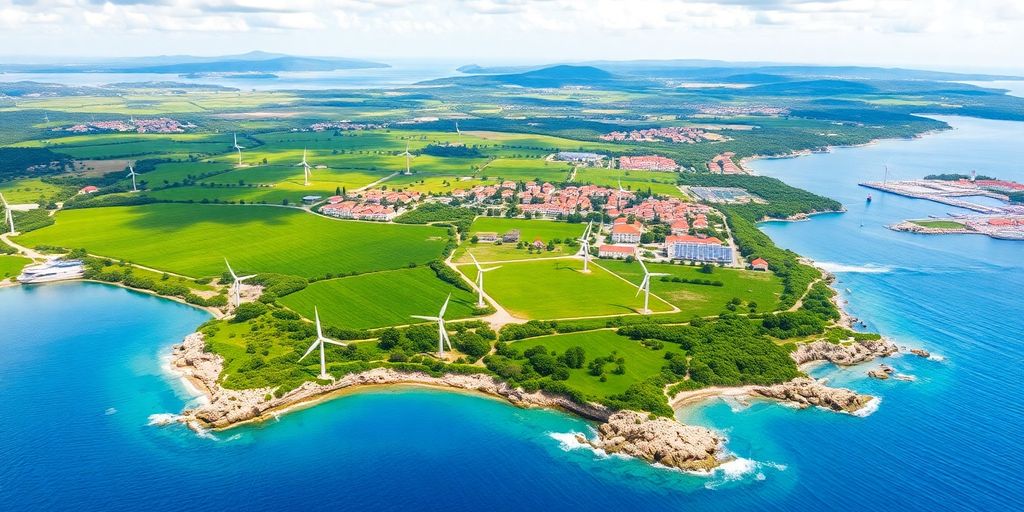Croatia is making significant strides in enhancing its economic and environmental landscape through various initiatives aimed at improving infrastructure and promoting sustainability. With a focus on wastewater management, electric transportation, and renewable energy, these projects are set to bolster the country’s appeal to both residents and tourists alike.
Key Takeaways
- Croatia is investing in wastewater systems to enhance environmental protection and tourism.
- A €50 million grant will fund the installation of e-bus charging stations across the country.
- Plans for solar energy initiatives include €25 million for public sector solar plants and €10 million for residential solar systems.
Enhancing Wastewater Management
Croatia’s coastal regions are set to benefit from a major upgrade to their wastewater systems, supported by EU Cohesion funds. The project, which began in 2017, aims to improve the sewerage network in three key areas: Novi Vinodolski, Crikvenica, and Selce.
- Project Highlights:
- Addition of 53 km of new sewerage pipelines.
- Reconstruction of 19 km of existing pipelines.
- Construction of ten new pumping stations and renovation of five.
The second phase of this project, expected to be completed by 2027, will enhance wastewater treatment facilities, ensuring safer water and improved sewage collection. This initiative not only aims to protect the environment but also to increase the attractiveness of these tourist destinations, which welcome approximately 329,000 visitors annually.
Investment in Electric Transportation
In a bid to promote sustainable transportation, Croatia has announced a €50 million grant to fund the installation of electric bus charging stations. This initiative is part of a broader strategy to reduce carbon emissions and enhance public transport infrastructure.
- Key Objectives:
- Facilitate the transition to electric buses.
- Reduce reliance on fossil fuels in public transportation.
- Improve air quality in urban areas.
This investment is expected to significantly contribute to the country’s green transition, making public transport more environmentally friendly and efficient.
Solar Energy Initiatives
Croatia is also gearing up for a substantial investment in solar energy, with plans to allocate €25 million for public sector solar plants and an additional €10 million for residential solar systems. These initiatives are part of a larger €652 million renewable energy and decarbonization package.
- Solar Tender Plans for 2025:
- €10 million for residential solar arrays, covering up to 50% of installation costs.
- €25 million for public sector solar plants and heat pumps.
- Additional calls for renewable electricity production and modernization of district heating systems.
The Croatian government aims to distribute €125 million across various public calls in 2025, further solidifying its commitment to renewable energy and sustainability.
Conclusion
Croatia’s economic and environmental initiatives reflect a comprehensive approach to sustainable development. By investing in wastewater management, electric transportation, and solar energy, the country is not only enhancing its infrastructure but also paving the way for a greener future. These efforts are expected to attract more tourists, improve the quality of life for residents, and contribute to the overall health of the environment.
Sources
- Inforegio – EU Cohesion funds help improving the wastewater systems of three coastal agglomerations in Croatia, European Commission.
- Croatia to fund e-bus charging stations with 50 mln euro grant | Croatia Politics News | SeeNews, SeeNews.
- Croatia plans solar tenders in 2025 – pv magazine International, pv magazine International.






